YABLOKO criticized Progress Report of the Russian Federation on Implementation of the Convention on the Elimination of All Forms of Discrimination against Women
Press Release, 04.02.2015
On February 3 YABLOKO Gender faction held a meeting where its participants discussed the 8th Progress Report of the Russian Federation on the Implementation of the Convention on the Elimination of All Forms of Discrimination against Women.
When opening the meeting head of the Gender faction Galina Mikhaleva said that all the participants have the opportunity to participate in the creation of an alternative report.
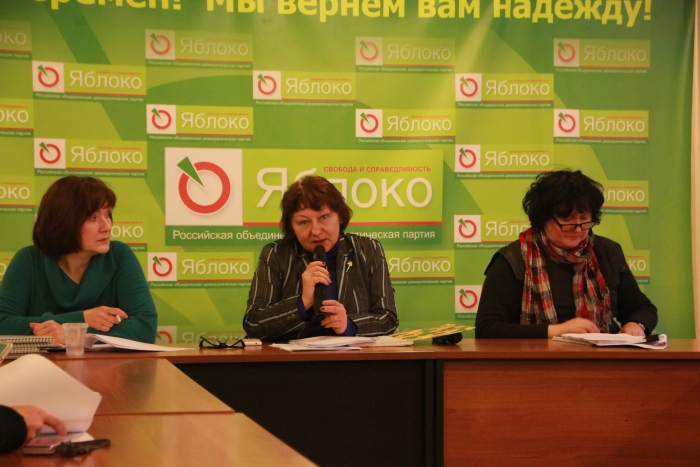
Olga Radayeva, Galina Mikhaleva, Nadezhda Azhgikhina
“In fact, the report does not display any problems. The most important thing is that the document doesn’t recognize the fact that we don’t have a single institution that would deal with women’s rights. We have neither an ombudsman for women’s right, nor a Commission under the Government of President. We haven’t adopted a law on state guarantees of gender equality, ” emphasized Mikhaleva, noting that the law has been discussed since 1995.
“The report says that the most important thing for Russia is the Russian national traditions, that the word” gender” is alien to the Russians. And all the legislation provisions which has been mentioned are the laws on family or children. There are no examples relating to gender equality, anti-discrimination.
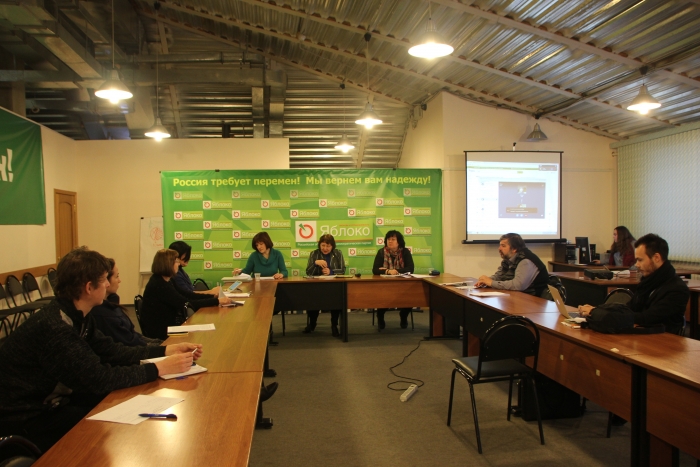
“We have seen that work towards the implementation of Article 19 of the Constitution on equal rights and opportunities for men and women isn’t being managed. Moreover, the situation is deteriorating, ” noted Galina Mikhaleva.
According to head of the Gender faction, it’s connected with the imposition of traditional patriarchal values.
“A woman turns out to be an aggrieved party within the framework of what is called “a conservative turn,” she said.
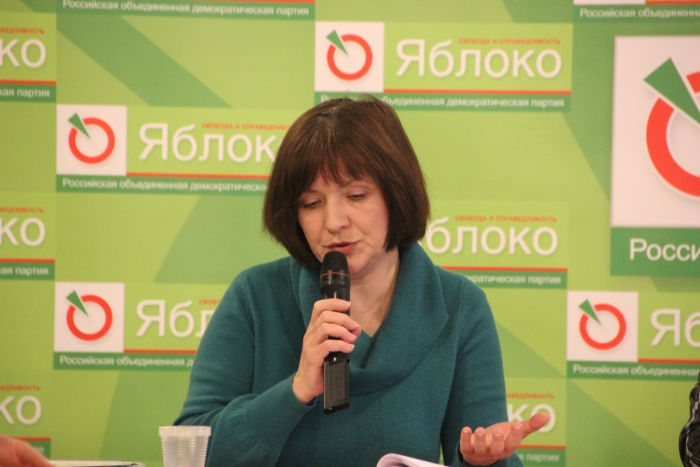
Olga Radayeva
Deputy Chair of YABLOKO Gender faction Olga Radayeva analysed the report point by point.
Olga Radayeva agreed with Galina Mikhaleva that the law on gender equality must be adopted. The other participants of the meeting supported them.
“Due to lack of legal regulation we have different problems with gender discrimination in various fields. It turns out that we have no subordinate regulatory acts. If in court a woman is trying to prove that her rights have been violated, for example, in a case with an employer, it turns out that it is almost impossible,” she said.
Radayeva reminded that the law on gender equality was trying to introduce such a norm that in case
a competitor appealed to court it is the employer who would have to prove that the employee hadn’t been discriminated.
The document’s authors try to convince us that the rules on prohibition of discrimination is contained in all sectoral laws. But deputy chair of the Gender faction believes that it is not enough.
Olga Radayeva also noted that the authors are trying to assure that all the citizens of Russia are very well aware of gender equality, of the Convention. According to Radayeva, far from true.
Summing up her speech, Olga Radayeva called to conduct a public debate on the law on national mechanisms for gender equality.
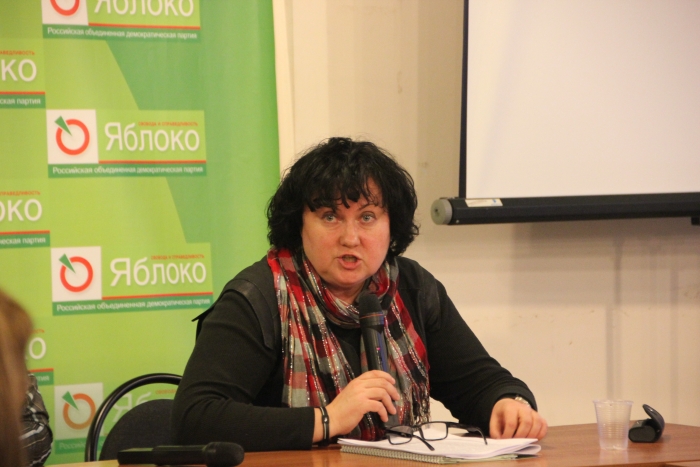
Nadezhda Azhgikhina
Executive secretary of the Journalists Union Nadezhda Azhgikhina said that she was member of the Interdepartmental Commission on Advancement of Women at Government.
“In March 2015, in New York there will be a special session of the UN General Assembly on Women, it happens annually, but this year it is dedicated to the 20th anniversary of the largest conference in the world on Women in Beijing and the analysis of what has happened during this time,” she said. Nadezhda Azhgikhina was part of the Russian delegation at the event.
“Then in Russia all that was just beginning to develop, and the Russian movements were ahead of other countries. Today Russia has fallen far behind in terms of legislation,” she said.
Nadezhda Azhgikhina noted that the meeting was very important. “We have a chance to take the opportunity to convey the voice of the democratic public to the world, because it isn’t being heard in mass media or in official documents”, she noted.
According to Azhgikhina, the attitude toward women in society is a litmus test that shows the state of democracy.
“From the fact that our women, equality and democracy will suffer, our future will suffer as well,”she said.
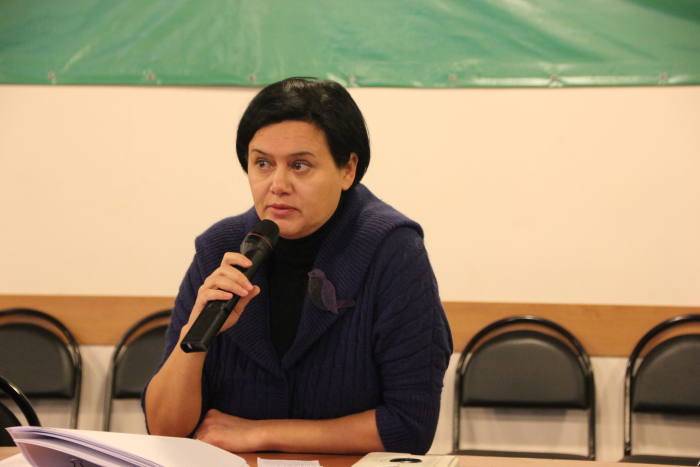
Natalya Bitten
The founder of the For Feminism initiative group Natalia Bitten noted that the report had not shown evidence of discrimination in education. She cited an example with Kazan IT-high school, where there was a blatant case of gender discrimination. Prosecutors acknowledged this, but the situation has not been resolved in favour of the discriminated girls, student girls of the high school.
“If to fight for the adoption of the law on gender equality, it is necessary to edit it, so that the law would effectively confront discrimination and equalize women’s rights. Some versions of the bill have been interpreted in two ways,” she explained.
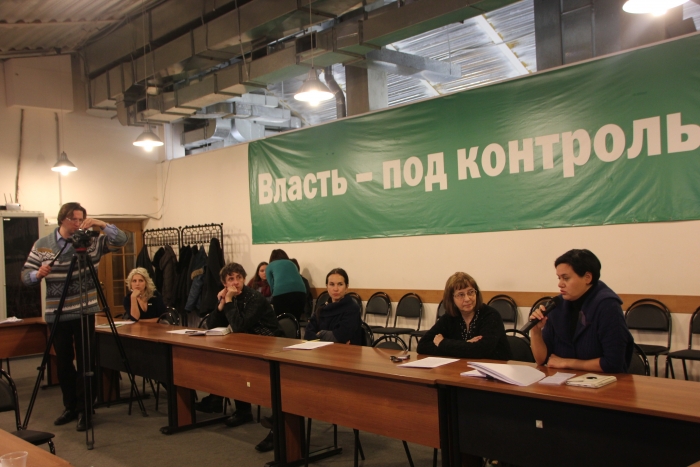
Bitten also noted that in Russia there was no gender analysis of legislation.
Municipal deputy, Deputy Chairman of the Moscow branch of YABLOKO Grigory Semyonov addressed the issue of the rights of women in small business, absence of outwork regulation, complexities of employment in the pre-retirement age and after a maternity leave.
“Our state has the least care about socially disadvantaged”, – concluded Grigory Semyonov.
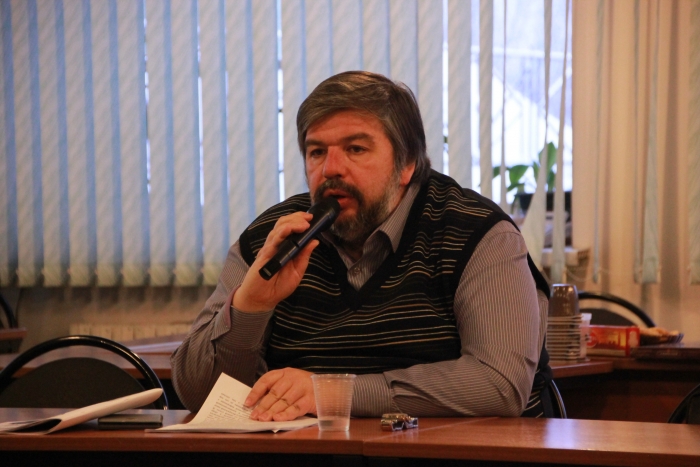
Grigory Semyonov
Head of the Active citizen school Tatiana Ovcharenko analyzed gaps in family and housing law regarding women and definitions of family. Now the family, consisting of individuals from different generations, for example, a grandmother and grandson, is not recognized as a family and is deprived of housing benefit. Galina Mikhaleva asked her to prepare an appropriate application to the authorities.
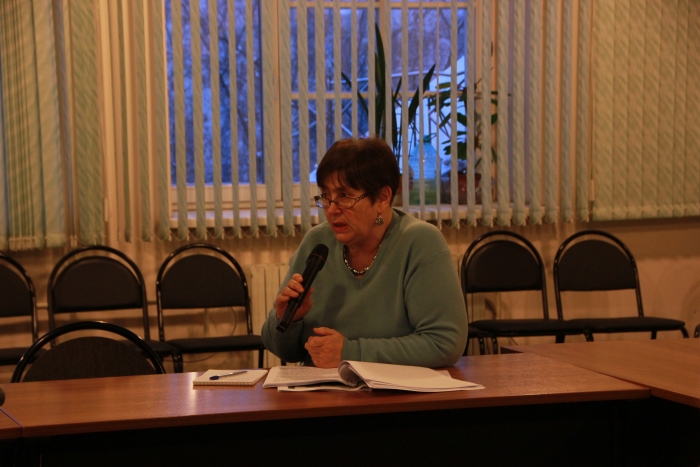
Tatyana Ovcharenko
Member of the Regional council of the Moscow branch of YABLOKO Marina Karavayeva prepared a detailed critical review on the Report which was discussed by the participants of the meeting.
The issue of raising the retirement age was also discussed. Tatiana Ovcharenko and Galina Mikhaleva said that it was inevitable.
“The pension legislation does not welcome the work of pensioners and deprives them of their allowances as soon as they go to work. This impedes the work of women more than the work of men,” said Ovcharenko.
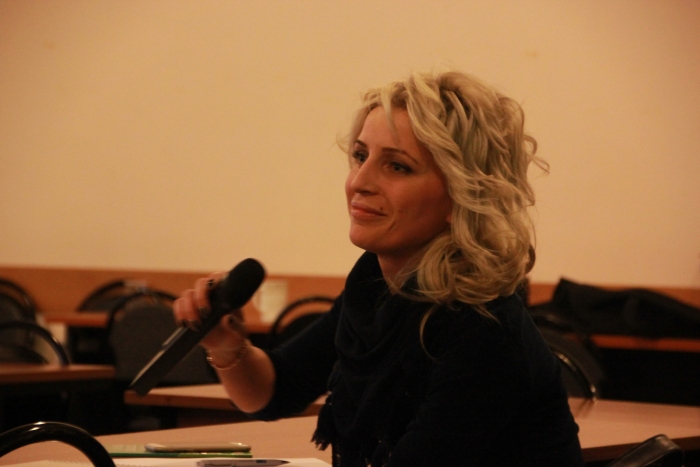
participant of the meeting
Galina Mikhaleva agreed that the retirement age in the current demographic and economic situation must be increased, as it was set in 1934, when women were engaged in heavy physical labor. In European countries, retirement age is 65 years or older. And it is often the same for men and women.
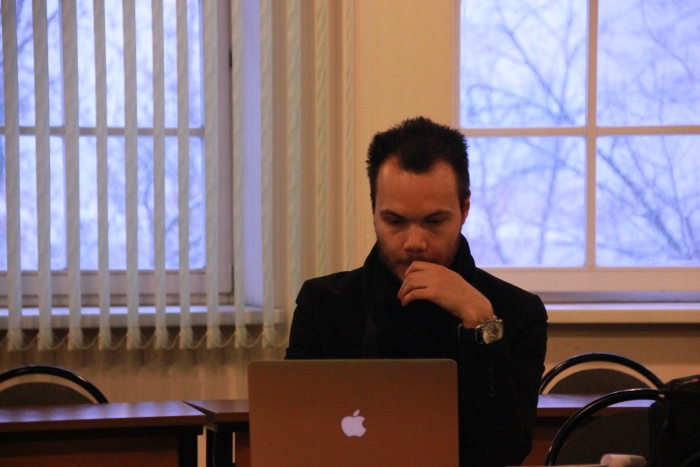
Grigory Semyonov noted that women aged over 45 years have difficulties in getting a job, there are no special state programme for requalification. So, there is no job and no pension.
At the end of the meeting Galina Mikhaleva said that all the comments and suggestions would be sent to a group preparing an alternative report.
Natalia Bitten announced the upcoming traditional awarding “The sexist of the year”.
Posted: February 9th, 2015 under Gender Faction.






